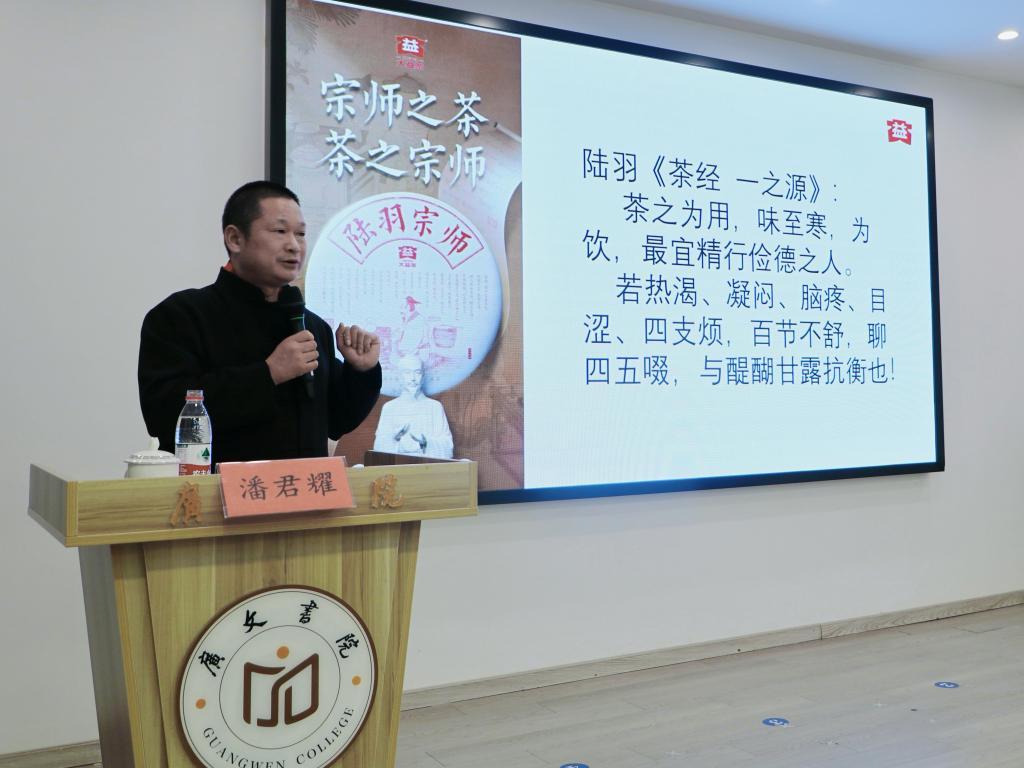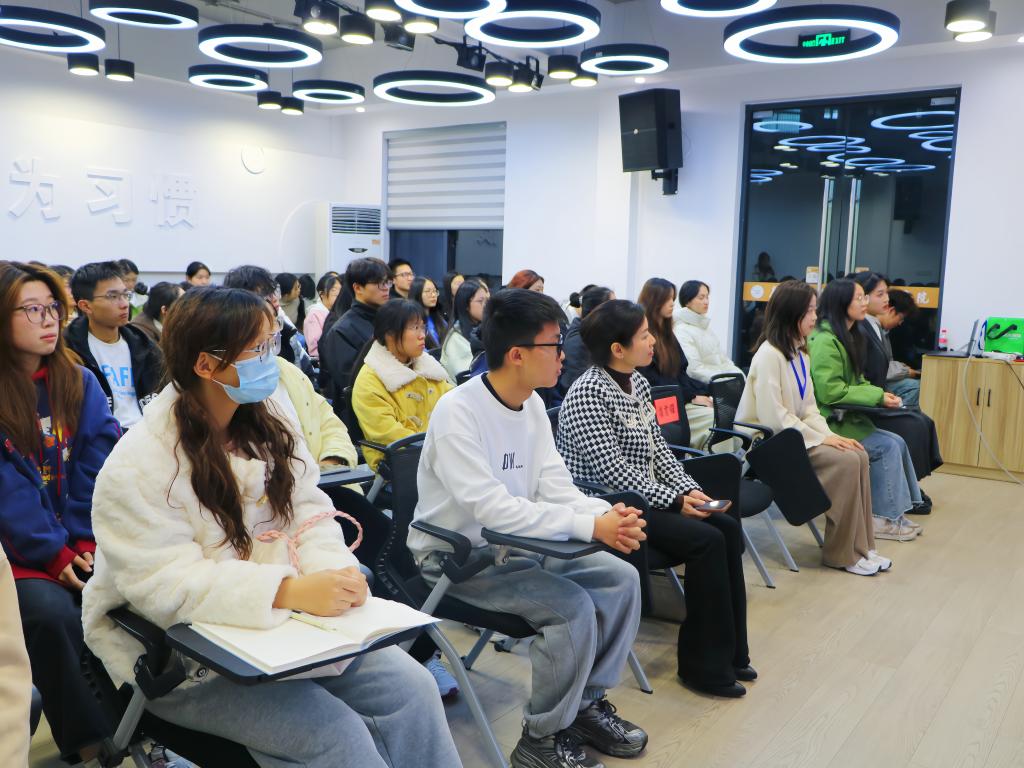On the evening of November 29th, Pan Junyao, an alumnus of the Chinese Department of Taizhou Normal College in Grade 1993 and vice president of the Ningbo Alumni Association of TU, was invited to give the 18th lecture at Deye Master Forum. The topic is Chinese Tea Culture and Tea Health from the Perspective of World Intangible Cultural Heritage. This lecture was jointly organized by the University Administration Office (Alumni Office) and the University Youth League Committee.

Lecture: Chinese Tea Culture and Tea Health from the Perspective of World Intangible Cultural Heritage
The lecture, which directly met the mainstream of tea culture, was welcomed by students. The multi-function hall of Guangwen Academy on Linhai Campus was full of students. With three pictures and three realms, Pan shared his life experience after his graduation from Taizhou Normal College (now TU) in 1993. He told stories about his psychological transformation from the field of education to journalism, and thereafter to tea. Based on the theme, he pointed out that with the global recognition of Chinese tea as an “intangible cultural heritage,” it is imperative for students to deepen their understanding of “Chinese tea.”
The lecture began with two events that both “44 Chinese traditional tea-making techniques and customs” and “Jingmai Mountain Ancient Tea Forest Cultural Landscape” in Pu’er of Yunnan Province were listed as “World Intangible Cultural Heritage” by the United Nations. It explained the profound heritage of “Chinese tea culture” with the time axis and the importance of tea to human health in the geographical axis by combining “free radical medicine,” “intestinal microbial medicine,” and two experiments (experiments on mice and fruit flies) by Professor Wang Yuefei of Zhejiang University. Meanwhile, the relationship of “Chinese tea industry,” “Hangzhou as tea capital and Ningbo as tea port,” and Ningbo as the “Maritime Silk and Tea Road” with the tea industry and the “Belt and Road” has also been explained.

At the lecture
During the interactive session, the students actively participated and put forward their own questions and insights. Pan answered the questions patiently and discussed the charm of tea culture with everyone, which was a lively and wonderful lesson on “Chinese Tea Culture” for the young students.